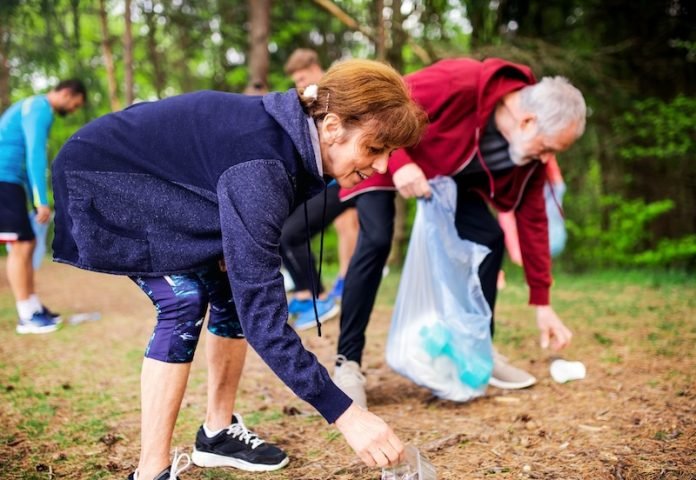
Volunteering is not only a selfless act that makes a positive impact on the lives of others but also a practice that can significantly benefit the health of those who engage in it, particularly older adults.
Research has revealed a multitude of advantages that volunteering offers, making it a valuable activity for seniors. Here are the top three health benefits of volunteering:
Improves Physical and Mental Health
Volunteering is a dynamic activity that engages both the body and the mind. Studies have shown that older adults who volunteer experience notable improvements in their physical and mental well-being.
Volunteers often report better physical health compared to those who do not engage in volunteer work. Additionally, volunteering has been linked to lower rates of depression and anxiety, particularly among individuals aged 65 and older.
One reason for these positive effects is the release of dopamine in the brain during volunteer activities, which reduces stress and promotes positive feelings.
The act of contributing to others and receiving appreciation generates a sense of meaning and fulfillment that can have a calming and stress-reducing impact.
Reduced stress levels, in turn, decrease the risk of various physical and mental health issues, including heart disease, stroke, depression, anxiety, and general illnesses.
Remarkably, volunteers tend to have lower mortality rates, even after accounting for age, gender, and physical health.
Provides a Sense of Purpose and Teaches Valuable Skills
Volunteers play a crucial role in various essential tasks and activities, granting them a sense of purpose and fulfillment, especially when they contribute their time and talents to causes they find meaningful. Older volunteers often experience a significant increase in life satisfaction and self-esteem.
Volunteering encompasses a wide range of activities, including working at libraries, schools, food pantries, and local hospitals. Hospital volunteers, for example, serve as greeters, patient room informants, and provide assistance with patient transportation.
Some volunteers use their crafting skills to create items like prayer shawls, blankets, sweaters, and hats for newborns and cancer patients. Others contribute by working in hospital gift shops, handling clerical duties, or offering pet therapy to patients.
Engaging in such volunteer work not only imparts a sense of purpose but also equips individuals with valuable skills and experiences, enhancing their overall well-being.
Nurtures New and Existing Relationships
Volunteering fosters social interaction and the formation of support systems based on shared interests. One of the most effective ways to make new friends and strengthen existing relationships is by participating in collective activities.
This is particularly important for older adults, as social circles can tend to shrink during retirement.
Volunteers often come from diverse backgrounds, providing opportunities to expand social networks and practice social skills with a variety of people.
Building and expanding social connections can be especially valuable during the retirement phase of life.
People volunteer for a variety of reasons, including career exploration, skill development, meeting new people, community service, and staying active in retirement.
However, all volunteers share a common goal: to improve the health and well-being of individuals in their communities.
Through their selfless efforts, volunteers positively impact society and experience numerous personal benefits that contribute to a happier and healthier life in their golden years.
If you care about health, please read studies about the best time to take vitamins to prevent heart disease, and vitamin D supplements strongly reduce cancer death.
For more information about health, please see recent studies about plant nutrient that could help reduce high blood pressure, and these antioxidants could help reduce dementia risk.
Copyright © 2023 Knowridge Science Report. All rights reserved.



